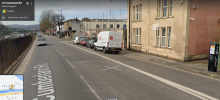That's of course true, but it does help delivering better services as conditions can be set to operators and operators can be forced to run on unprofitable hours, just like with railway franchising, and should help reduce the subsidy needed for evening services.
However, that works on the assertion that there are substantial profits being made by bus companies in the UK. They aren't and haven't been for several years. And of course, in the UK, rail operators have been free to innovate albeit to a minimum service level. That isn't what is being proposed; this is akin to the European model of a fixed management fee, possibly open book or closed book, and you merely provide a service against an agreed budget.
I wouldn't say the Netherlands is doing a good job in discouraging car use. Parking is only outrageously expensive in Amsterdam and slightly less so in Utrecht and The Hague, but in the rest of the country prices are quite low. Actually, I was surprised by the high prices in the UK! There is no congestion charge anywhere in the country and the proposals for a road pricing scheme are just a distance-based price, so that doesn't do anything about it either.
I didn't specify Netherlands. In Copenhagen, they have followed a very subtle policy of removing on-street car parking so that it physically becomes more difficult to use a car in the city. Couple that with better cycling and public transport...
I agree you should do it where it is useful, but looking at the UK now, it is so fragmented. There is a lot of potential for making connections work at stations. That will mean public transport is a good option for more people and will thus help in changing the modal split. It isn't the silver bullet, but it is an important first step as you make many more destinations viable. Next steps can be ticketing, funding etc
Don't disagree with this in a general sense and would be happy to see improved connectivity. However, as I keep saying, it really isn't the biggest issue affecting the UK's buses.
I used to live in Bristol and see visit regularly. Temple Meads station is peripheral so yeah, we can terminate services there but it would make no sense. Same for Leicester and Leeds and Swansea. Cardiff used to have a superbly located bus station next to the station....it was sold for development.
Franchising works as good as the conditions and requirements set in the tender. But it at least gives the authorities more control over the conditions. I don't fully understand the rest of your comment. I do know integration can help to solve traffic problems by making public transport to be a better alternative and thus makes it possible to not use a car. These measures don't need to cost much, it is just more coordination than currently is the case.
My point is that when franchising is implemented in Manchester, and I don't doubt it will, it will be showcased as a transformational success by the politicians involved, irrespective of anything else... a bit like Brexit!
Manchester does at least have the Metrolink and as a consequence, many parallel bus services have already disappeared. It is one of the slightly comic aspects in that the politicians point to how much bus patronage has fallen yet much of that is because Metrolink has grown! I digress... The fact is that all the current transport network costs £x with this involving bus operators, Metrolink, rail operators etc. There are promises that fares will reduce and the main part is removing any penalties for interchanging...
However, the cost isn't going to change markedly.
- Operator margins, in general, are now not much more than in the franchise world
- Operating costs have been much reduced over the last 35 years as staff terms and conditions have been eroded
- Overbussing and competition has all but disappeared since the bad days of the late 80s and early 90s
- Duplication with other modes has largely disappeared - see the reduction on Eccles New Road or Washway Road
So either you are going to cut direct links and disadvantage passengers, or you have more revenue support. You don't have to look too far to see that in London, pre Covid, that as soon as the revenue support has reduced, so has the service and so has the ridership.
Meanwhile, Manchester has had a referendum on congestion charging (no surprise - it was rejected) and nothing is done to rectify the issue of car use.
My issue is that you can't do things in isolation. I'd suggest there is already a number of people who could commute into Manchester via Metrolink from neighbouring towns except they don't fancy being on a slow bus with no priority to get into Bury before changing. Instead, in the UK, and it's not just Manchester, that we can do things on the cheap and in isolation and that if you have integrated ticketing, all will be good in the world - it's only part of the picture and whilst laudable, there are other priorities not least for those people in places where the bus is the sole means of local transport.

